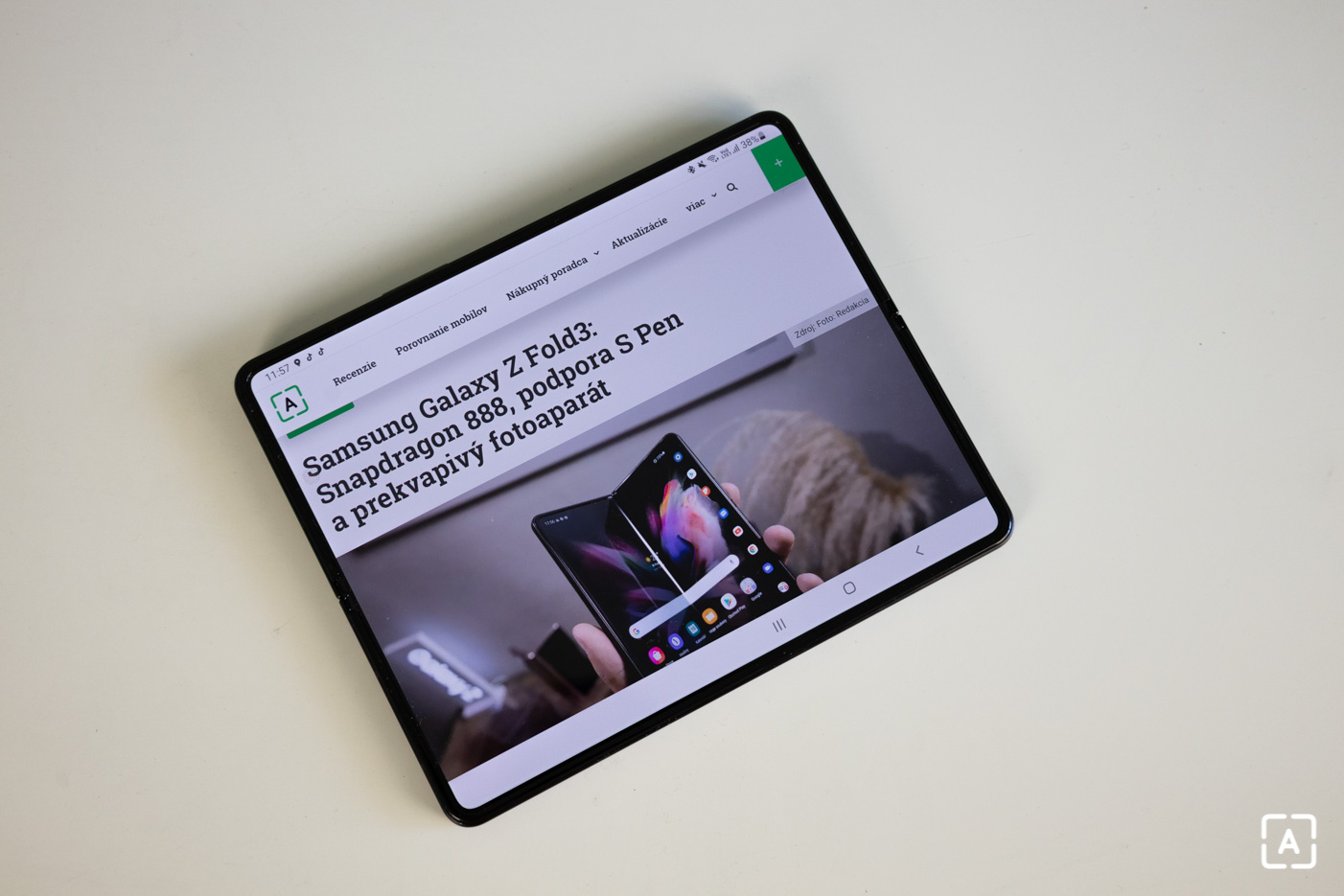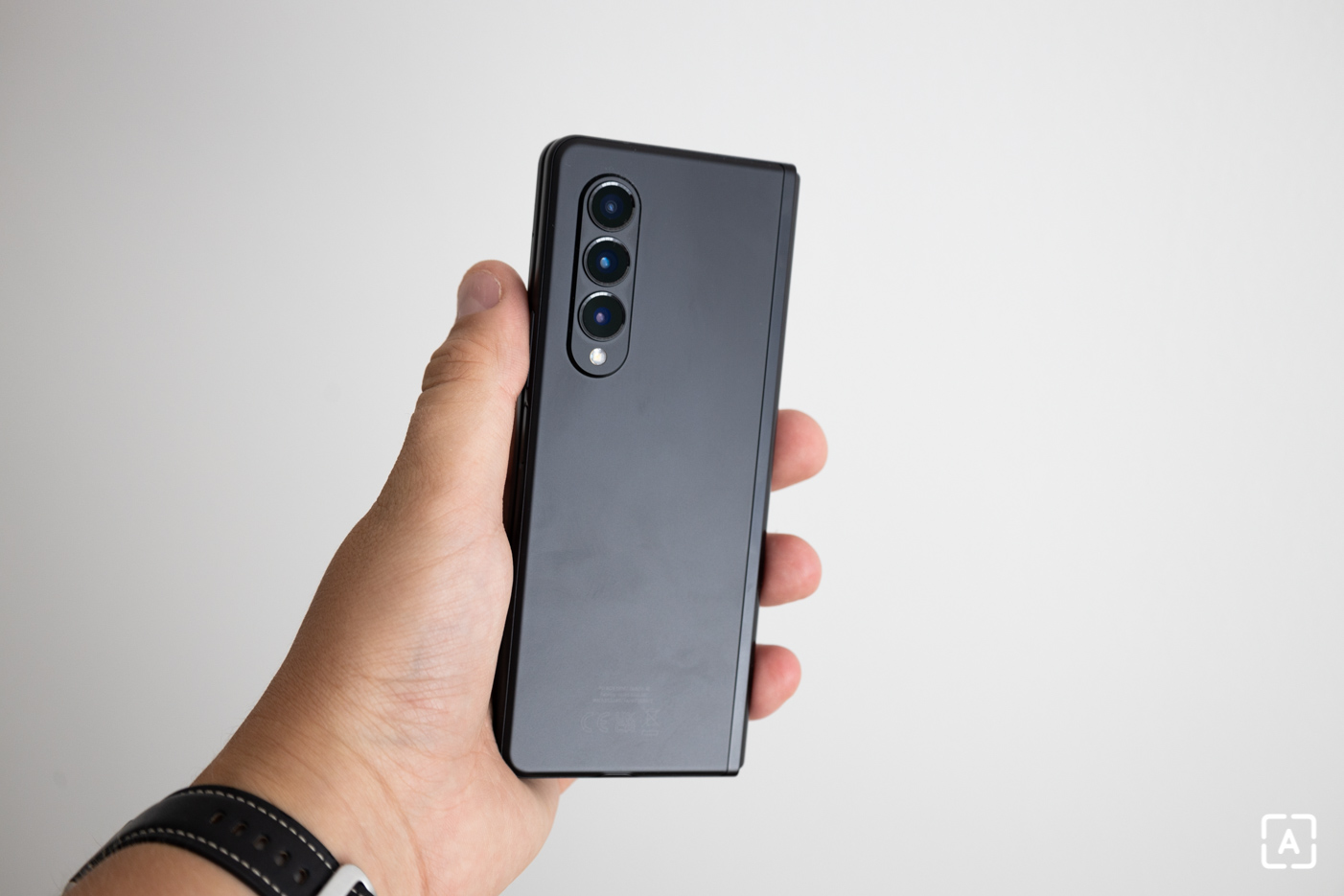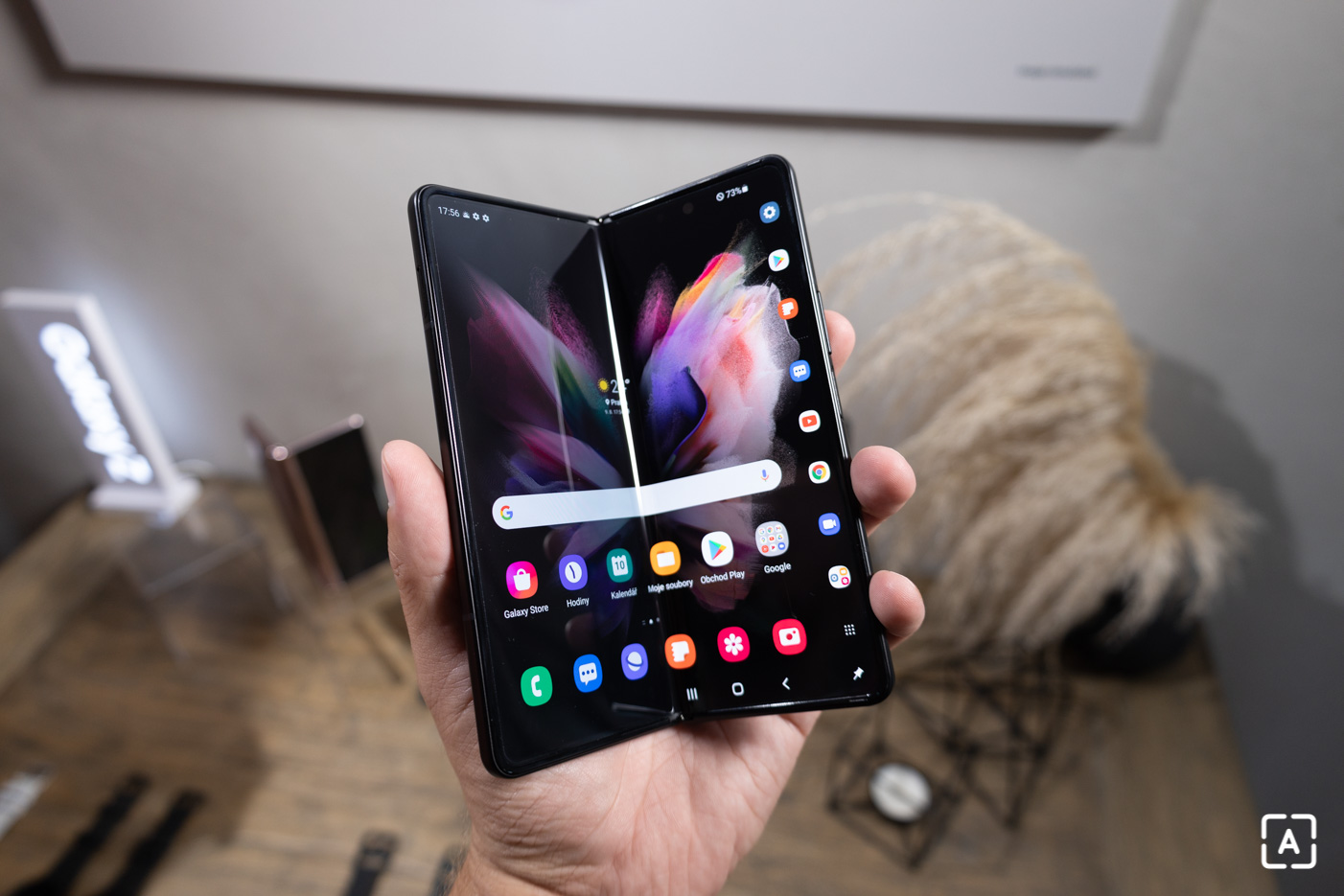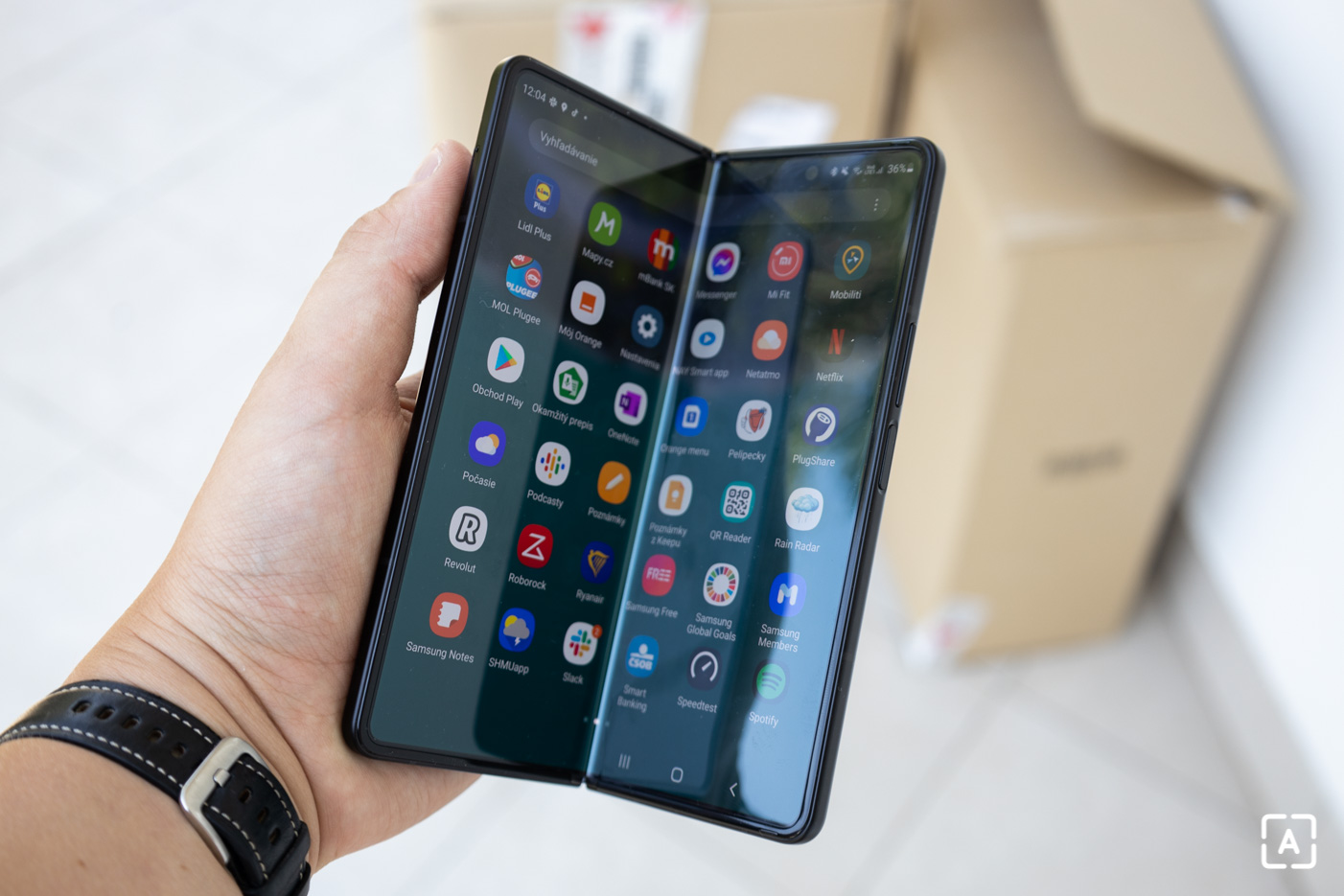Samsung Galaxy Z Fold3 vs Galaxy Z Fold2
Samsung Galaxy Z Fold3 is the most equipped folding smartphone with a flexible display on the market and we are currently testing it for you in the editorial office. In this article, we will look at its differences from the previous generation Samsung Galaxy Z Fold 2.
Contents
Design and construction
At first glance, the design of the new generation has not changed. The only more visible change is the different shape of the camera module, whose LED flash is now located under the three sensors. What has clearly changed is the durability of the whole device. It should meet the IPX8 standard, which guarantees its resistance to water to a depth of 1.5 meters for 30 minutes in laboratory conditions. The smartphone is also a little smaller and lighter.
Display and audio
The external news display has shrunk negligibly. At the same time, it is similar to the internal one made by Dynamic AMOLED technology, which could ensure better durability. The refresh rate of 120 Hz is also an improvement. The internal flexible display has not changed with its parameters, but for the first time, a selfie camera is hidden under its display area. The display has no hole or cutout.

A big new feature is the support of the S Pen, which will be used for notes, sketches, drawing, multimedia editing or more convenient editing of documents. Unfortunately, it is not integrated into the body of the smartphone and the customer must buy it. The external display and the body of the smartphone are protected by the latest toughened Gorilla Glass Victus. Stereo speakers from AKG are the same as for the Galaxy Z Fold2.
Samsung Galaxy Z Fold2
![]()
Power and memory
The performance of the smartphone again increased slightly thanks to the 5 nm Qualcomm Snapdragon 888 chipset, which is a noticeable performance leap compared to the 7 nm Qualcomm Snapdragon 865 chipset. However, the size of the operational and internal memory has not changed. There is 12 GB of RAM and 256 GB or 512 GB non-expandable storage.
Cameras and connectivity
The rear camera is completely identical to the one found in the Galaxy Z Fold2. This means three 12-megapixel sensors with optical stabilization and 2x optical zoom. The external selfie camera has not changed either. The change occurred only in the case of the camera’s internal selfie. In addition to being hidden under the display panel of the flexible display, it also has a higher resolution of 16 megapixels and better f / 1.8 brightness.

From the point of view of connectivity, we have all the possibilities of connection here as in the case of the previous generation. This means 5G, Wi-Fi 6, UWB, NFC or USB-C connector. The only thing that has changed is the newer Bluetooth 5.2 interface. Again, the 3.5 mm headphone jack is missing. Conversely, the customer can still use the Samsung DeX desktop mode. The fingerprint sensor is on the side of the device.
Battery, system and price
The capacity of the novelty battery slightly decreased from 4500 mAh to 4400 mAh. However, this should be negligible when using more economical components. You can charge it again with 25 W cable charging or 11 W wireless charging. The system is in the Android 11 version with the new One UI 3.5 extension, which older Samsung smartphones do not have yet. However, perhaps the most pleasant change is the lower price of the device by about 200 euros.
Verdict
Samsung Galaxy Z Fold3 has not changed so fundamentally at first glance compared to the previous generation Galaxy Z Fold2, but it brings some pleasant improvements. In addition to the intergenerational increase in performance, these are smaller dimensions, water resistance, selfie camera in the internal display, support for the S Pen and, most importantly, a lower price.

Parameter comparison:
| Samsung Galaxy Z Fold3 | Samsung Galaxy Z Fold2 | |
| Display | External: 6.2 inches, Dynamic AMOLED, 2268 x 832 pixels, 120 Hz
Internal: 7.6 inches, Dynamic AMOLED, 2208 x 1768 pixels. 120 Hz |
External: 6.23 inches, Super AMOLED, 2260 x 816 pixels
Internal: 7.6 inches, Dynamic AMOLED, 2208 x 1768 pixels. 120 Hz |
| Chipset | Qualcomm Snapdragon 888 | Qualcomm Snapdragon 865 |
| RAM | 12 GB | 12 GB |
| Internal memory | 256 GB/ 512 GB, UFS 3.1 | 256 GB/ 512 GB, UFS 3.1 |
| Rear camera |
|
|
| Selfie camera | Internal: 16 MP, f / 1.8, 1.0µm, in display External: 10 MP, f / 2.2, 26mm, 1/3 ″, 1.22µm |
Internal: 10 MP, f / 2.2, 26mm, 1/3 ″, 1.22µm External: 10 MP, f / 2.2, 26mm, 1/3 ″, 1.22µm |
| Connectivity | 5G, LTE, Wi-Fi 6, Bluetooth 5.2, NFC čip, GPS, USB-C | 5G, LTE, Wi-Fi 6, Bluetooth 5.0, NFC čip, GPS, USB-C |
| Battery | 4400 mAh, 25 W cable charging, 11 W wireless charging, 4.5 W reverse charging | 4500 mAh, 25 W cable charging, 11 W wireless charging, 4.5 W reverse charging |
| Dimensions | Unfolded: 158.2 x 128.1 x 6.4 mm Composite: 158.2 x 67.1 x 14.4-16 mm |
Unfolded: 159.2 x 128.2 x 6.9 mm Composite: 159.2 x 68 x 13.8-16.8 mm |
| Weight | 271 grams | 282 grams |
Our tip
Google Pixel 5a photos leaked to the internet the day before the show



